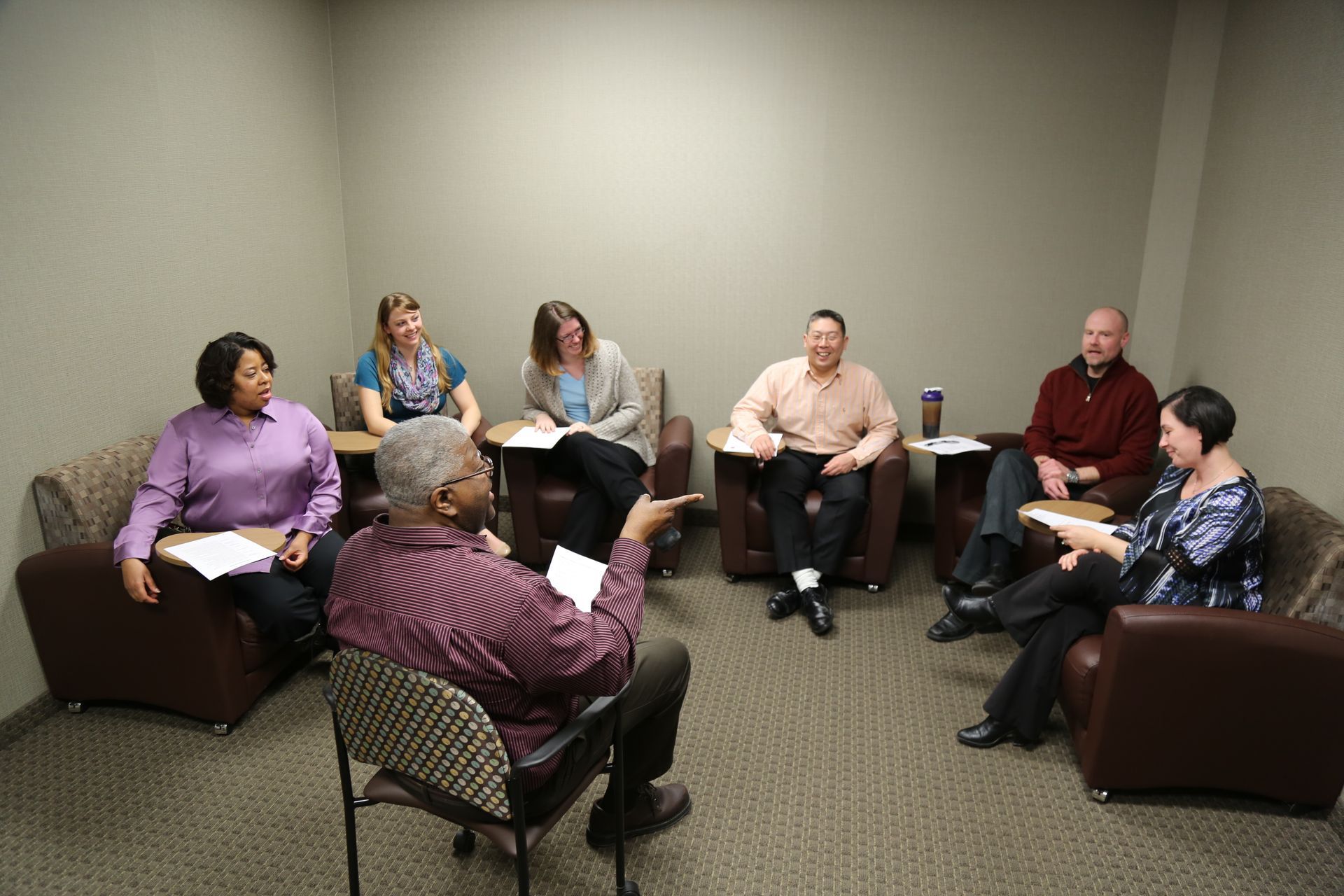Breaking The Stigma Around Adult Mental Health Services-💜
CNS Healthcare • July 25, 2025
As adults, we all deal with big responsibilities regularly. From family problems, health matters, relationships, and more, it's easy to see how life can get overwhelming and we might need help carrying the load.
Sadly, many people in Michigan who need the most help are discouraged from getting individualized help through adult mental health services because of what others might think about them. They avoid much needed mental health treatment simply because they see it as a sign of weakness or they are embarrassed to ask for help.
In this post, we'll talk about common myths that exist when it comes to mental health services, as well as your options for support including outpatient treatment, group therapy, and beyond.
Key Takeaways
- Stigma prevents many Michigan locals from taking advantage of adult mental health services, even though support is available.
- Having mental health problems does not represent weakness. They can be caused by genetics and physical health.
- Waiting to get help can lead to worse problems later, even resulting in hospitalization or long-term damage to critical relationships.
- CNS Healthcare provides mental health care services to over 8,600 people per year. Their crisis hotlines and county offices can offer immediate help.
- Education through groups like NAMI are helping to shift the false beliefs of mental illness, making it less difficult for adults to seek care without judgment.
Understanding the Stigma Around Adult Mental Health Services
To understand the stigma around adult mental health services, you'll first need to recognize its common misconceptions.
Common misconceptions about mental health care
Many believe that mental health care only helps those with serious mental illness. However, these treatment programs cover a large range of issues including anxiety disorders, mood disorders like bipolar disorder, substance use disorders, and even eating disorders.
Others believe that having mental health issues is a sign of weakness or failure, but this is false. Psychiatric symptoms can arise for many reasons, including genetics and physical health factors.
The Consequences of Stigma
Unfortunately, this stigma creates barriers that prevent people from seeking the adult mental health services they need. This delay can make existing mental health issues worse, creating a cycle of suffering.
Families and loved ones often feel helpless as they watch their relatives struggle. To combat this, social workers and mental health professionals emphasize how important it is to have open conversations about mental health issues.
Reluctance to seek adult mental health services
Many adults needing mental help from a behavioral health clinic are worried what their family members, friends, or coworkers might think. Their loved ones might view counseling services for anxiety, or even personality disorders as a weakness.
Others feel nervous to meet with social workers or health care providers because of privacy concerns.
High costs, long waits in clinics and a lack of information are even more reasons why Michigan residents may refrain from getting help and community resources for psychiatric care or addiction treatment.
Declining mental health conditions
If left untreated, mental health disorders can get worse over time. Putting off necessary care may make symptoms like emotional disturbance, alcohol use, or substance use, harder to reverse. This may lead to preventable hospitalization in a psychiatric hospital and long-term negative impacts on daily life and relationships.
Timely treatment options help reduce severe episodes and improve quality of life.
CNS Healthcare offers a number of adult mental health services for Oakland County residents, whether you're in need of therapy, medication management, crisis intervention, or just need peer support. Early intervention will provide a better outcome than waiting until your condition becomes more severe.
Strategies to Break the Stigma
While the stigma of mental health programs is widespread, we can begin to overcome it through education and awareness. Learning from organizations like the National Alliance on Mental Illness and donating to local organizations like CNS Healthcare can help spread information and support more adults.
Encouraging those in need of help to get professional guidance and participate in peer support groups can also push these initiatives forward and advocate for change.
Promoting education and awareness
Education plays a critical role in escaping the stigma surrounding adult mental health services. Mental health is truly just as important as physical health. Awareness campaigns through organizations like the National Alliance on Mental Illness can help shift myths and misconceptions about mental health.
The combined emotional support and educational resources of communities and professionals can begin to improve our understanding of mental wellness and psychiatric services.
Professional and peer support
Professional and peer support both play an important role when it comes to mental health services and the approach of whole person care.
Mental health professionals can provide guidance as well as connect you to community health resources like pharmacy services, psychiatric evaluations and facilities, and help you create a supportive living environment.
Additionally, the community connections of peer support allow those with mental health issues to benefit from shared experiences with others struggling from a similar condition.
These support systems join together to encourage healing and build confidence in young adults. If you or someone you know needs access to mental health resources or support, you can start exploring your options with the wide range of services offered at CNS Healthcare in Southeast Michigan.
Get Support Today
Now that you better understand the stigma around adult mental health services, you can see how simple education and awareness can quickly shift false misconceptions.
You can do your part by promoting positive conversations about mental health within your community. These kinds of conversations can lead to better mental health outcomes for everyone.
CNS Healthcare offers low-cost outpatient services on a sliding scale in Wayne County, Macomb County, and Oakland County for both young and older adults. It's easy to start caring for your mental health today. Take the first step by reaching out to CNS and speaking with one of our mental health experts now!
FAQs
1. What is the goal of adult mental health services?
Adult mental health services support those struggling with emotional and psychological challenges, which can range from anxiety and depression, to personality disorders. These programs also assist those who have transitioned from children’s mental health care, by providing continued guidance.
2. How does MHSA improve access to mental health information for adults?
The Mental Health Services Act funds credible programs that offer valuable health information for adults needing mental health support. This helps adults know their rights, contact local services, and understand how to better manage their well-being.
3. What is a transition age youth program compared to adult mental health services?
Transition age youth are those moving from children's health care into adult care. These specialized programs focus on a child's unique needs during this time, ensuring no disruption in support or treatment.
4. Where can someone find reliable information on adult or children’s mental health services?
You can find more information on the CNS Healthcare website where you'll learn more about our specialized mental and behavioral health services, for both kids and adults.
Newsletter
Stay up to date by subscribing to our newsletter.
Recent Posts
SHARE THIS POST WITH YOUR FRIENDS













